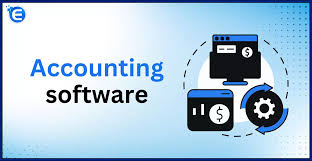In the rapidly evolving ecommerce industry, Accounting system managing accounting and staying compliant with tax laws can be a daunting challenge. With frequent updates to tax regulations, it’s essential to stay informed and ensure your business meets all legal requirements. This blog post outlines best practices and tips for navigating tax laws and regulations in ecommerce accounting.
Understand Your Tax Obligations
The first crucial step is understanding your tax obligations. Depending on the structure and reach of your ecommerce business, you may need to collect and remit sales tax in various states. Research and comprehend the tax laws in each state where your business has a sales tax nexus—a connection that mandates the collection and remittance of sales tax.
In addition to sales tax, your ecommerce business may also be liable for income tax on profits. Consulting with a tax professional can help you determine your obligations and ensure compliance with all relevant tax laws.
Keep Accurate Records
Accurate record-keeping is fundamental to ecommerce accounting and tax compliance. Maintain comprehensive records of all sales, expenses, and transactions. This includes bank statements, invoices, receipts, and other financial documents.
Accurate records help you stay organised, simplify the preparation and filing of tax returns, and identify areas where you can reduce costs and enhance profitability.
Use Accounting Software
Accounting system can significantly simplify ecommerce accounting and tax compliance. These tools help track finances, generate financial reports, and prepare and file tax returns efficiently.
Popular accounting software options include Million, QuickBooks, and Xero. When selecting software, consider your business’s specific needs and budget to find the most suitable solution.
Automate Sales Tax Collection and Remittance
Automating sales tax collection and remittance can save time and ensure compliance with applicable tax laws. Tools like TaxJar, Avalara, and Vertex integrate with ecommerce platforms to automatically calculate, collect, and remit sales tax based on customer locations.
These automation tools reduce the risk of errors and streamline the sales tax process, allowing you to focus on other aspects of your business.
Consult with a Tax Professional
Consulting a tax professional is vital for ecommerce businesses. A tax expert can help you understand your tax obligations, ensure compliance, and identify potential tax-saving opportunities. They can also assist with complex issues such as international taxes and tax credits, providing valuable advice on optimising your tax strategy.
Stay Up-to-Date with Tax Laws and Regulations
Tax laws and regulations frequently change, making it essential to stay informed about the latest updates. Subscribe to tax newsletters and updates from the IRS and state tax agencies, and attend tax seminars and webinars.
Staying current with tax laws ensures your ecommerce business remains compliant, helping you avoid costly penalties and fines.
Conclusion
Navigating tax laws and regulations in ecommerce accounting can be complex, but understanding your obligations, maintaining accurate records, using accounting software, automating sales tax processes, consulting with tax professionals, and staying updated with regulatory changes can ensure compliance and prevent penalties.
Remember, tax compliance is an ongoing process requiring dedication and attention to detail. Following these best practices and tips, you can effectively manage tax laws and regulations in ecommerce accounting, supporting the long-term success of your business.

